Description
Behold the Artistry of the Rare Favorite
Dive into a world of botanical elegance with the Calathea ‘Marion’. This stunning houseplant showcases a tapestry of deep green and soft, velvety purple leaves, each intricately patterned with feathery, light-green markings that radiate from the center like a painter’s delicate brushstrokes. Native to the rainforests of South America, the ‘Marion’ is a symphony of nature’s best artistry. Its leaves are not just a visual treat but also have a rhythmic motion, gracefully closing upwards during the night and unfurling to greet the day. Ideal for those who appreciate the subtler beauty in plants, the Calathea ‘Marion’ thrives in indirect light and enjoys a humid environment. Besides its aesthetic brilliance, it acts as a natural air purifier, making your indoor space both beautiful and breathable. Choose Calathea ‘Marion’ for an infusion of understated elegance in your home or office.
Caring for your Prayer Plant
Taking good care of any plant is essential to ensure it grows appropriately and blooms. You need to take care of several things, such as the amount of water you need to give the plant, the best way to propagate it, and the kind of fertilizer you need to use. Here is a complete care guide you can use.
Light
This plant enjoys medium and bright indirect light. They should not be placed in direct sunlight as that can damage the plant significantly. You can set the plant in a room with a window and get reasonable amounts of indirect light. Ideally, these plants grow under large trees in their natural habitat. Therefore, they need indirect but good amounts of light. If your plants do not get enough sunlight, they will produce smaller leaves and stunted growth.
Soil
Calatheas enjoys a well-draining soil that can be a mixture of potting soil, peat, and perlite. You can mix lighter soils such as coir or pumas. Experts recommend avoiding the usage of heavy soils as they are not well draining.
Water
It is vital to give your Prayer plant a balanced amount of water. The plant is susceptible to water. They do not deal well with too little water or too much water. If you do not give the plant enough water, its leaves will dry out, and if you overwater it, the roots will start to rot, which can cause the plant to die.
The soil of the Calathea needs to be moist at all times. You can check the moisture in the ground with your finger. Your plant likes a humid environment, so you can try to keep humidity levels high using a mist, and the plant will thrive.
Fertilizer
The Calathea requires regular fertilizer during its growth stages. You can give it fertilizer every two or three weeks when the growth is in full swing. The best fertilizer match is chemical or organic fertilizer. It is best to avoid any fertilizer during the winter as that can be shocking for the plants in their dormancy.
Common Issues
If you do not take good care of your prayer plant, it may face many issues such as pest infestation and other diseases. Let’s look at all the common problems you must be aware of.
Pests
Spider mites are the most common pests to infest the Prayer plant. Other than that, they may also attract aphids and or scale insects. If these pests infect your plant, you might see yellow leaves and other visible spots on the surface of the leaves.
To control the pest infestation, you can use insecticidal soap.
Disease
Root rot is the most common disease in the Peacock plant. If you overwater it and do not choose well-draining soil, then that can cause your plant’s roots to rot. To avoid root rot, you should only water your plant when scorched. You can check for dryness using your finger.
Other than that, bacterial growth in your plant may suffer from Pseudomonas Leaf spot. This can cause a reddish-brown spot on the leaves and distort them. To treat this problem, it is best to cut off the damaged leaves so that the bacterium does not spread.
Pruning
This plant does not require you to prune it very frequently. All you need to do is to keep an eye out for all the damaged and wilted leaves. Removing them from the plant will help improve your plant’s growth, as only the healthy parts of the plant will get the nutrients.
Propagation
You can propagate the Peacock plant when it grows big. You can multiply it by root division. You can do it during the springtime as that’s when the plant is waking up and is in its active growth period. Be sure to separate it naturally.
Potting / Repotting
You can re-pot the plant during the spring and fall. It is best to re-pot the plant every two years or if you think the pot is full of roots. Choose a slightly bigger pot for the re-potting.

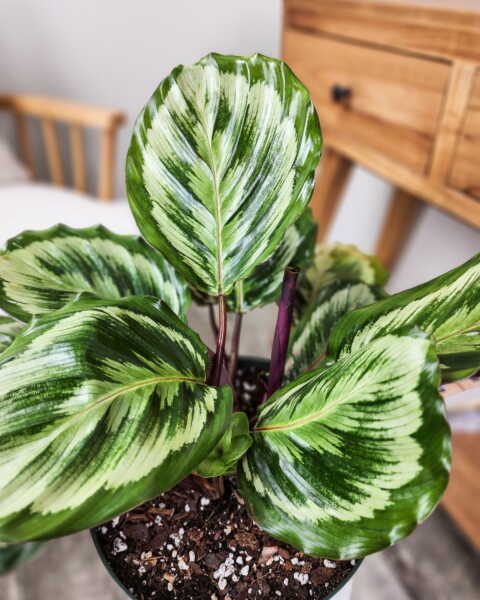
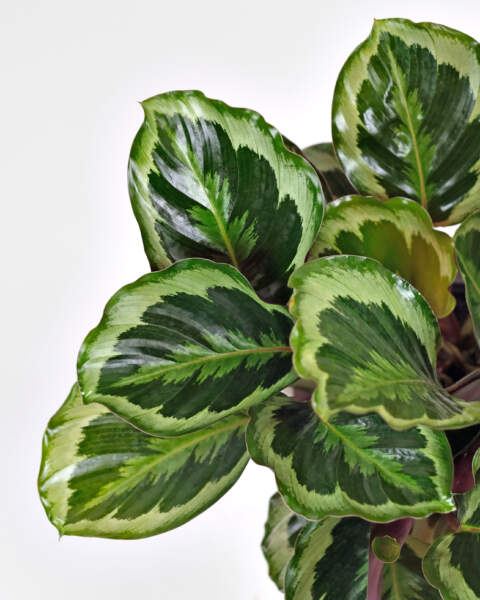






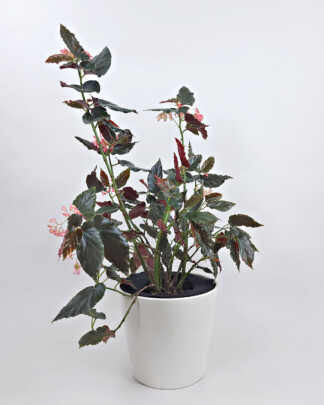
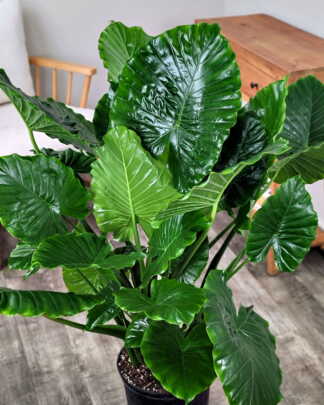

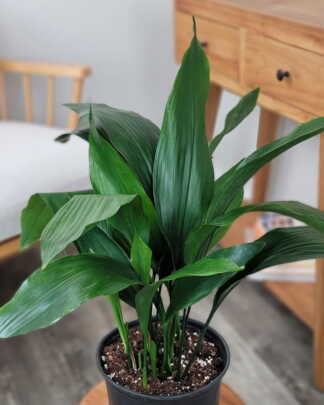
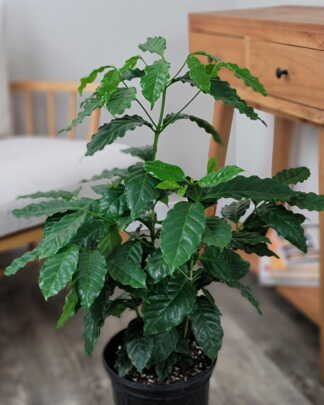


Audra (verified owner) –
A gorgeous big Healthy plant
Jacqueline T. (verified owner) –
This plant was not available
Kathy D. (verified owner) –
Beautiful plant, healthy and happy!
T ward (verified owner) –
Plantvine packaging is the best in industry. Never loose dirt no damage leaves I’m a constant customer. They send plants with love and care
maria H. (verified owner) –
Came by FedEx in just a few days. The wrapping was the best I’ve seen. Roomy box with paper wrapping, peanuts and a bamboo stick in the center to keep the packaging from touching the plant. Not sure if this is a mature calathea but it sure looks like it. Huge beautiful leaves. Photo does not do it justice. Not a single damaged or curled leaf. The color is just lovely. Even one week later it’s still perfect. Will certainly purchase again if other calathea varieties come available. I’ve ordered from quite a few vendors and this one was impressive. Plus flat rate shipping! with FedEx can’t be beat.
Anonymous (verified owner) –
Awesome size and quick delivery. Simply Beautiful.